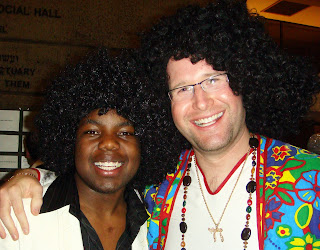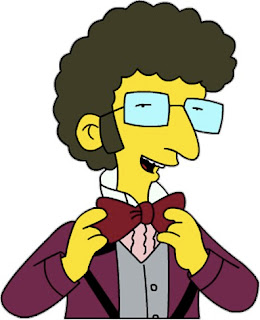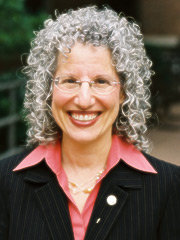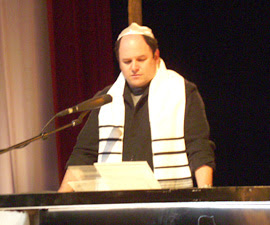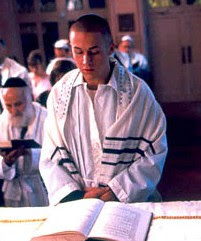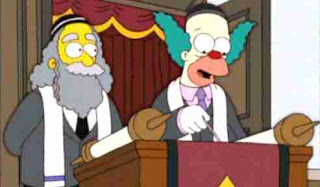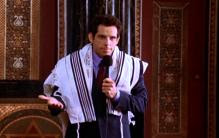I was one of three Jewish educators asked to respond to a statement about Jewish identity for this month’s issue of Sh’ma: A Journal of Jewish Responsibility. The statement was co-written by Patrick Aleph and Michael Sabani, the co-founders of Punk Torah. After I responded to their statement in writing, Patrick and Michael interviewed me via Skype. Their statement, my response and the video interview are below:
“If I try to be like him, who will be like me?” (Yiddish Proverb)
No study has ever been done to discover the root cause of why people stop identifying with Judaism. If we worry less about Judaism as a culture and more about monotheism, we might find that — suddenly — people have something more to believe in. Jewish identity is more than matzah ball soup and Young Professionals mixers.
God, Israel (the people), and the Torah are essential for Jewish identity. Without God, we sit on a stool with only two legs. Theists need to summon up the courage to put God first in Jewish life in spite of the urge to keep our heads down so we don’t look crazy.
We often place a lot of importance on not standing out, especially in a “tribal” sense. It gives us a sense of being a part of something larger than ourselves. The flip side is that if we all try to be like someone else, we lose who we really are.
Judaism is a path (halakhah) that allows us to walk together, even if we walk at our own pace. When we try to be like another, we are giving up our God-given individuality.
—Patrick Aleph and Michael Sabani
My response:
Jewish identity is a tricky subject. We have no consensus on how to define it, what it should feel like, or to what extent it should be particularistic. I find that Judaism has much wisdom to offer, both to adherents of the faith and to the rest of the world. I’m often, therefore, baffled by our numbers — that we account for such a small fraction of the population.
Should we worry more about monotheism, as Michael Sabani and Patrick Aleph suggest? Should we worry less about the cultural components of our peoplehood? These are decisions that each individual “member of the tribe” must make. Some Jews will be enthralled with bagels and lox on Sunday mornings, federation meetings, Seinfeld reruns, and B’nai Brith softball. Other Jews will recharge their spiritual batteries in traditional synagogue life. Some will look to Jewish summer camp as their source of Jewishness, and for other people it will be the connection to the State of Israel. We are a club, but we’re not sure who is included and who decides our boundaries. It is good for us to stand out as tribally different, but we should also count our blessings that we are included in the larger fabric as well.

